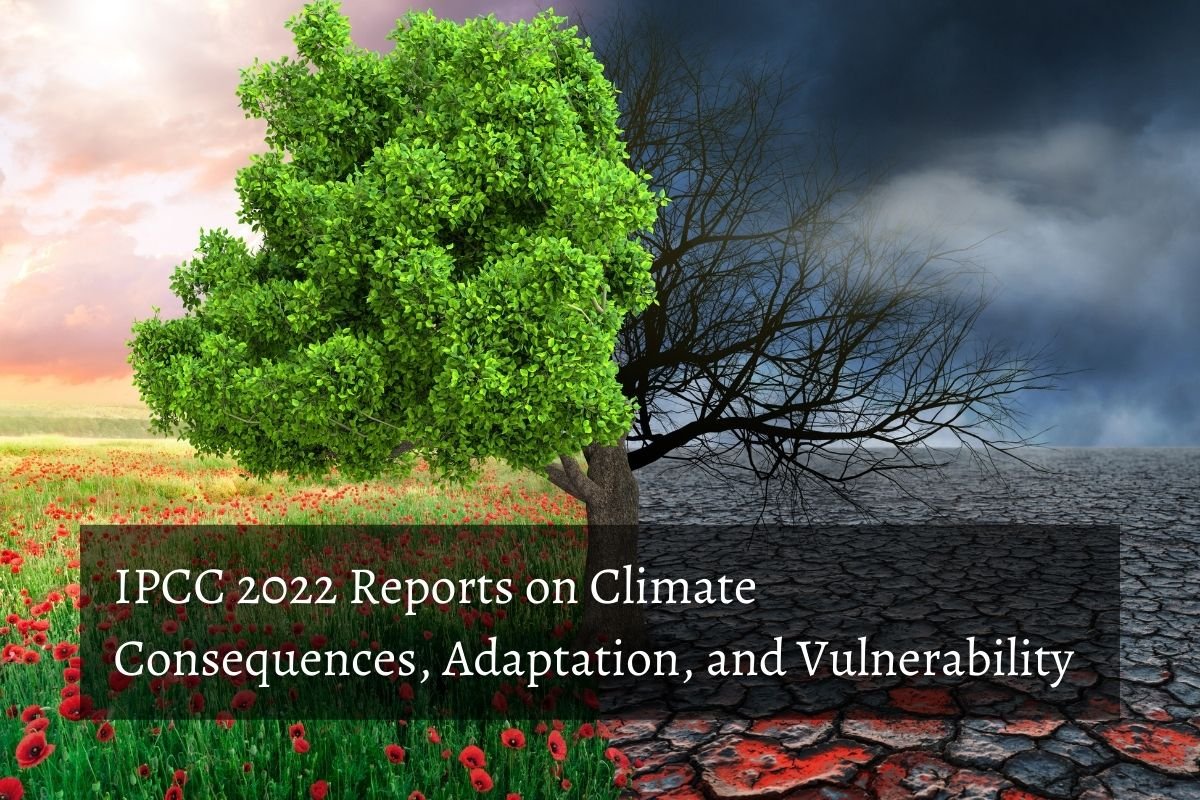Health
IPCC 2022 Reports on Climate Consequences, Adaptation, and Vulnerability
The recent findings of the IPCC (International Panel on Climate Change) have provided some disturbing pictures. According to their report, climate change has already started to affect the whole world. The report warned that if we cannot halve the emissions of harmful greenhouse gases within a decade, nations vulnerable to the climate crisis will reach the edge of extinction.
The 1st installment of their 6th assessment report was released on February 28, 2022. The report shows detailed pictures of the effects of climate change and the risks they pose in the future, focusing on marginalized communities and poor countries. The report delineates which ecosystems and groups of people are most vulnerable and outlines some of the most feasible and effective climate adaptation approaches.
Here, let us find some significant takeaways from the 2022 IPCC report:
The impacts of climate change have already become more severe and widespread than expected-
The average global temperature has risen by 1.1 degrees Celsius, and climate change is already wreaking havoc on our planet’s ecosystem. Extreme heat, severe droughts, and devastating floods threaten the livelihoods and food security of lakhs of people. Since 2008, about 20 million people have been compelled to leave their homes each year. Due to climate change since 1961, crop yields have also shrunk a lot in many parts of the world.
Nowadays, at least 1 month per year, almost 50 percent of the global population faces freshwater insecurity. In many parts of the world, regions are being scorched by wildfires more than ever before. Global warming directly or indirectly enables the spread of several vector-borne and water-borne diseases, such as malaria, Lyme disease, West Nile virus, cholera, etc.
Climate change and global warming are also causing the extinction of multiple species. Due to climate change, the planet’s biodiversity has been affected. Now animals like Bramble Cay Melomy and golden toads are extinct because of the warm temperatures of the world. Mass die-offs of other animals like seabirds, corals, and flying foxes have quickly increased the risk of extinction. Thousands of birds and animals are changing their habitats and moving to higher latitudes.
In the coming days, we are doomed to even worse climate change consequences-
The recent IPCC report claims that even if the earth rapidly decarbonizes, the existing greenhouse gases and current emissions patterns would have unavoidable climate impacts by 2040. According to the IPCC, climate change will push 3.2-13.2 crore more people into extreme poverty. Food security will be jeopardized due to global warming, and heart disease, mental health issues, and heat-related deaths will all rise.
Increased food risk, for example, might result in an additional 48,000 diarrhea-related deaths in under-15-year-old children in 2030. Ecosystems and biodiversity will also undergo significant changes. Mangroves will fail to protect themselves against sea-level rise, and species dependent on sea ice will decline. A lot of plants and trees will face large-scale death.
As temperatures rise, risks will rise faster, often resulting in irreversible climate change effects-
According to the estimation of the IPCC report, each tenth of a degree of further heat increases the risk of ecosystems, species, and humans being harmed. Even reducing the average global temperature to 2.7 degrees Fahrenheit (1.5 degrees Celsius), as outlined in the Paris Climate Agreement, is not a guarantee of safety for all.
For example, with just 1.5° Celsius of global warming, a lot of glaciers all over the globe will either entirely disappear or lose the majority of their mass. Furthermore, 350 million more people will confront freshwater scarcity by 2030, and up to 14 percent of terrestrial species could face severe extinction threats.
Similarly, with exceeding temperatures, irreversible climate change effects such as frequent storms, severe droughts, longer heat waves, extreme precipitation, loss of ice sheets, rapid sea-level rise, thawing permafrost, and many more will occur. The probability of mass forest dieback will increase, turning significant carbon sinks into critical carbon sources. The IPCC warns that the combined effects of drought and heat may trigger sudden losses in crop yields in tropical regions. With increased heat-related health disorders, labor productivity will decrease. Together, these adverse effects will raise food prices but lower the average income of families, exacerbating the risks like malnutrition.
The IPCC report asks nations to come forward to address damages and losses as soon as possible. Though the report finds that climate policies in 170 countries now include adaptation, many of them have yet to implement their policies. A significant gap has been created between the needed adaptation rates and current adaptation levels. But the only positive news is that current adaptation strategies can limit climate risks if implemented more rapidly and funded sufficiently.











